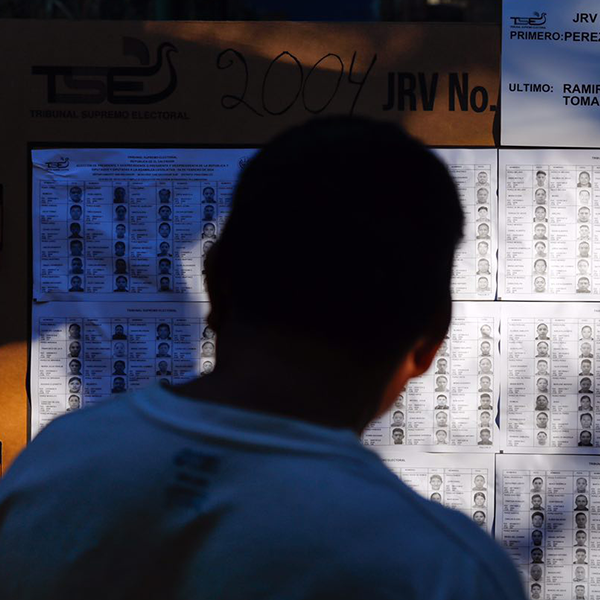
Election Crisis Undermines the Will of the Salvadoran People
The recently held presidential and legislative elections in El Salvador are marked by irregularities and actions that may constitute a crime of electoral fraud, both leading up to elections, on election day and in the days following. Cristosal monitored the election proceedings and detected constitutional and electoral law violations, including the following:
- The government used the state of exception as a tool to coerce and intimidate the population during the weeks before the elections, including deploying military deployments to some areas of the country
- The Legislative Assembly passed a reduction of the number of municipalities and representatives without any technical basis, to favor the ruling party in these elections and left no time for the Supreme Electoral Tribunal (TSE) to adapt to these changes.
- The Legislative Assembly and the central government financially strangled their political opponents by refusing them their legal right to access campaign financing.
- The President, who was not constitutionally eligible for reelection, his ministers, and members of Congress, used state resources to campaign. They also broke campaign rules by delivering food packages and inaugurating public works. In addition, they interfered inappropriately in the electoral process and the TSE failed to respond.
- The TSE demonstrated negligence in permitting an unconstitutional candidacy, failing to ensure equal participation among the parties, and ignoring irregularities during the campaign and on election day.
- The TSE failed to transparently manage the overseas vote when it failed to report on the procedures for guaranteeing the reliability of the process.
- The TSE did not guarantee the certainty of the results due to logistical, administrative and technological failures. Neither did it ensure the custody of electoral ballots and minutes of the voting boards.
The reports presented by different electoral observation delegations, both national and international, also share these findings and the concern that the process has not met international standards of legitimacy.
All of these issues undermine the free exercise of the political rights of Salvadorans, discouraging political participation at all levels: as voters, as candidates, as observers or members of polling station boards, and as active members of political parties and social organizations. This effectively suppresses political plurality and violates Article 85 of the Salvadoran constitution which says, «the existence of a single official party is incompatible with the democratic system and with the form of government established in this Constitution».
Cristosal calls on Salvadoran institutions to fulfill their role to guarantee a fair and transparent electoral process. We also call on the international community and the citizenry to be vigilant and continue to monitor the process to guarantee respect for the will of the people.
